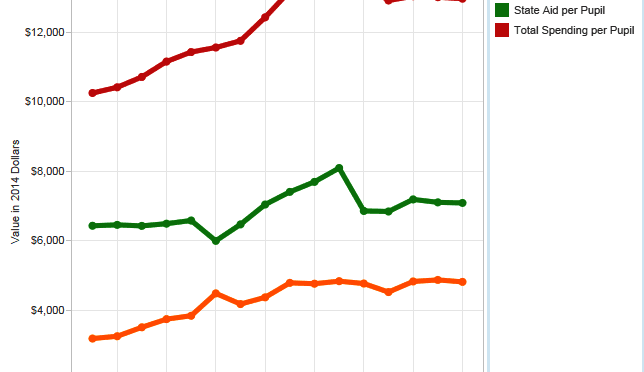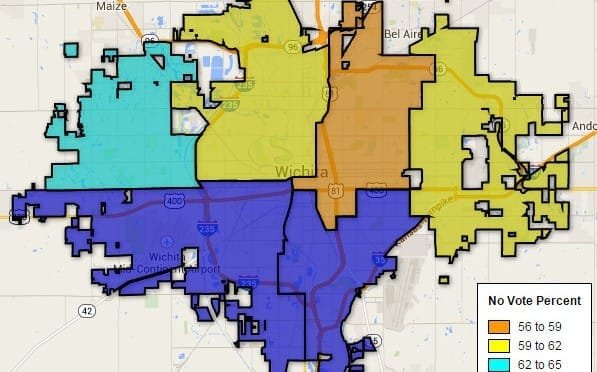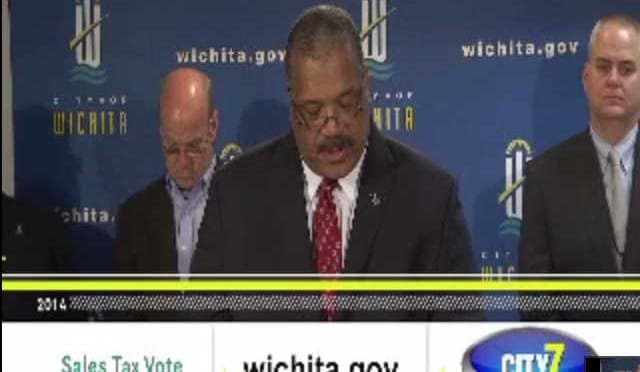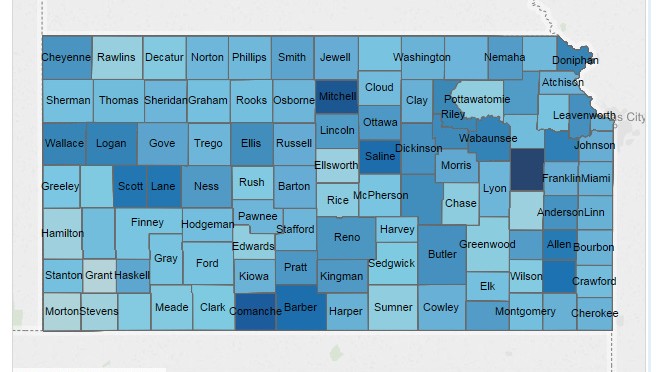In Sedgwick County, an unlikely hero emerges in the battle for capitalism over cronyism.
Now that the result of the 2014 general election is official, Richard Ranzau has notched four consecutive election victories over candidates endorsed by the Wichita Eagle and often by the Wichita Metro Chamber of Commerce. It’s interesting and useful to look back at what the Wichita Eagle wrote during each campaign as it endorsed Ranzau’s opponent.
In its endorsements for the 2010 Republican Party primary, the Eagle editorial board wrote:
In a district reaching from downtown Wichita north to include Maize, Valley Center and Park City, Republican voters would do well to replace retiring Commissioner Kelly Parks with the commissioner he unseated in 2006, Lucy Burtnett. Her business experience and vast community involvement, as well as her understanding of the issues and thoughtful voting record during her two years on the commission, make her the pick in this primary. She would like to see a new life for the Kansas Coliseum site, perhaps including a year-round RV park, and favors the county’s continued role in Fair Fares and the National Center for Aviation Training.
The other candidate is Richard Ranzau , a physician assistant retired from the Army Reserves who believes government is out of control, who would submit all tax increases to voters, and who opposes the county’s investments in air service and aviation training.
The Wichita Metro Chamber of Commerce political action committee contributed to Burtnett.
In this election, Ranzau received 55 percent of the vote.
Then for the general election in November 2010, the Eagle editorial board wrote this:
State Sen. Oletha Faust-Goudeau, D-Wichita, is by far the better choice in the race to replace Republican Kelly Parks, who is stepping down after one term representing the county’s north-central district. Her legislative experience, civic engagement and constituent service have prepared her for a seat on the county commission, where she wants to help attract businesses and jobs and would support efforts such as the new National Center for Aviation Training. “That’s a must,” she said. It’s a concern that Faust-Goudeau has been slow to address code violations at a house she owns, but the fact that neighbors have stepped up to help says a lot about her as a person and public servant. The first African-American woman elected to the Kansas Senate, Faust-Goudeau would make a hardworking and effective county commissioner.
Republican Richard Ranzau, a physician assistant retired from the Army Reserves, holds inflexible anti-tax, free-market views that would be disastrous for the county’s crucial efforts to support economic development and invest in affordable air service and aviation training.
In this election, Ranzau again earned 55 percent of the vote.
In the August 2014 Republican Party primary, the Eagle editorial board wrote:
Carolyn McGinn is the clear choice to represent this district that includes part of north Wichita as well as Maize, Park City and Valley Center. McGinn served on the commission from 1998 through 2004. Since then, she has served in the Kansas Senate, including as past chairwoman of the Senate Ways and Means Committee. As a result, McGinn knows state and local issues well and understands how they intersect. She is concerned about the region’s stagnant economic growth. In order to get businesses to come and grow here, the county needs a stable government structure that provides essential services, she argues. McGinn is a productive problem solver who could have an immediate positive impact on the commission.
Her opponent is incumbent Richard Ranzau, who is completing his first term. He has been a fierce advocate for the Judge Riddel Boys Ranch and for fiscal responsibility. But he also frequently badgers county staff and delivers monologues about federal government problems. He argued that a planning grant was an attempt by President Obama “to circumvent the will of Congress, the states and the people.”
The Wichita Metro Chamber of Commerce also endorsed McGinn.
In this election, Ranzau received 54 percent of the vote.
For the 2014 general election, here’s what the Eagle editorial board had to say:
Democrat Melody McCray-Miller is the clear choice to represent District 4, which includes north Wichita, Maize, Park City and Valley Center. A former county commissioner and four-term state representative and a business owner, McCray-Miller understands government at both the state and local levels and how it affects communities, families and businesses. Her priorities include economic development and community livability and engagement. “I would like to put the public back in public policy,” she said, accusing her opponent of representing his ideological views and not the full district. McCray-Miller believes in a balanced, collaborative approach to dealing with issues and people, focusing on “what’s best for the county.” She also would not turn down federal funds, as her opponent has voted to do, and supports using economic incentives to attract and retain businesses.
Republican incumbent Richard Ranzau is completing his first term, which has not been productive. Though he has done some good work watchdogging county spending, Ranzau frequently badgers county staff and other presenters at commission meetings. He also has used his position as an ideological platform to rant about the federal government, including by claiming that a federal planning grant was an attempt by President Obama “to circumvent the will of Congress, the states and the people.” McCray-Miller would be a better, more-constructive commissioner.
The Wichita Metro Chamber of Commerce also endorsed McCray-Miller.
This election was closer, with Ranzau gathering 51 percent of the vote to McCray-Miller’s 49 percent.
As a private entity, the Wichita Eagle is free to print whatever it wants. So too is the Wichita Metro Chamber of Commerce free to contribute to and endorse anyone.
But these two institutions appear to be out of touch with voters.
Do you sense a pattern? Ranzau’s opponents are thoughtful, would make hardworking and effective county commissioners, are productive problem solvers, understand government at both the state and local levels, and have a balanced, collaborative approach to dealing with issues and people.
Ranzau, according to the Eagle, believes government is out of control and holds inflexible anti-tax, free-market views. He frequently badgers county staff. (Believe me, they deserve scrutiny, which the Eagle calls “badgering.”) Oh, and he’s ideological, too. That simply means he has “a system of ideas and ideals, especially one that forms the basis of economic or political theory and policy.” As long as those ideals are oriented in favor of capitalism, economic freedom, and personal liberty, this is good. And that’s the way it is with Richard Ranzau. Would that the Wichita Eagle shared the same ideology.
I know what it is like to be on the losing side of issues year after year. Advocating for free markets and capitalism against the likes of the Wichita Eagle, the Wichita Metro Chamber of Commerce, most members of the Sedgwick County Commission, and all current members of the Wichita city council is a lonely job.
This makes it all the more remarkable that Richard Ranzau has won four consecutive elections running against not only his opponent, but also against the city’s entrenched establishment. Running against the crony establishment, that is, the establishment that campaigns against capitalism in favor of a “business-friendly” environment. The establishment that has presided over decades of sub-standard economic performance. The establishment that insisted on a sales tax that it hoped would gloss over the miserable results produced over the last two decades.
Thank goodness that defenders of capitalism are able to win an election now and then — or four in a row.




















